Adult children's ratings of their parents' behaviors on the ParentChild Relation Questionnaire II were correlated with selfreports and peer ratings of personality on the NEO Personality Inventory in a sample of 619 men and women aged 21 to 96, and several alternative explanations suggest that the correlations may exaggerate the influence ofThe ParentAdultChild model the basics Based on his observations of people in his own clinical practice in the nineteen fifties, the psychologist Eric Berne developed the idea that people can switch between different states of mind—sometimes in the same conversation and certainly in different parts of their lives, for example at work andTable 1Questionnaire measures of the ParentChild Relationship Measure Name Main Reference Measure Description and issues with validity/reliability Adult Adolescent Parenting Inventory (AAPI) (16) Bavolek, 1984 36 itemsparenting attitudes empathy toward the children's needs and parental expectations of the child's development (17)

Impact Of Parents Mobile Device Use On Parent Child Interaction A Literature Review Sciencedirect
Parent child relationship scale pdf
Parent child relationship scale pdf-Personality may influence their emerging relationship with their young child has been growing Early relationships are critical for both parents and children Belsky and Barends (02), in their review of the history and current state of research on personality and parenting, articulated the most needed directions for the futureA child who is either your or your spouse's grandchild, sibling, nephew or niece, and who lives in a parentchild relationship with you linecoorg linecoorg Un niño que es nieto, hermano, o sobrino de usted o de su cónyuge, y qu e vive en una



Core Ac Uk
The objective of this study was to describe the translation procedure and examine the psychometric properties of the Chinese version of the Parent–child Relationship Inventory (PCRI)—an instrument used for assessing parenting competencies for child custody evaluation (Gerard 1994)This instrument measures the parenting skills, attitudes towards parentingParentChild Relationship Inventory (PCRI) The statements below describe different ways some parents feel about their children For each statement, decide how you feel If you strongly agree, select the 1 next to that statement number If you agree, select the 2The students of class Xth were administered with ParentChild Relationship Inventory (PCRI) and after scoring, parentally accepted & parentally rejected students were selected for study Indian adaptation of Career Maturity Inventory (CMI) of Crites, (by Dr (Mrs) Nirmala Gupta) was administered on the students selected in the final sample
The implications of the adult child and parent relationship for adult mental health has been relatively neglected in the adult psychopathology literatureThe Parent AdultChild Relationship Questionnaire (PACQ) was developed out of a need to identify key themes in this filial relationship, and construct a valid measure for its assessment, that is simple to administer and score Assessment in counseling is strengthened when research exists to demonstrate the psychometric strength of scores from a particular instrument across samples This study presents a psychometric syntThe original version of the ParentChild Relationship Inventory for Children (PIC, in German FEBK) was given to a sample of 371 fourthgrade students of different elementary schools in Hamburg Factor and item analysis led to a 22item questionnaire with the dimensions Care, Control, Lack of Limitations, Confidence, and Conflict/Rejection
My child doesn't seem to need to be the best at everything They are OK My child knows what they are good at and how to apply their strengths to the task My child seems to have a good outlook on their future Thank your for completing the LifeWay Health & WellBeing Inventory™ for ParentsThis unique selfreport inventory tells you how parents view the task of parenting and how they feel about their children Designed for use with mothers or fathers of 3 to 15yearold children, the PCRI gives you a clear, quantified description of the parentchild relationship And it identifies specific areas in which problems may occurThe ParentChild Relationship Inventory Maternal was used to assess maternal communication and discipline, and child aggression was assessed using the Children's Behavior Checklist
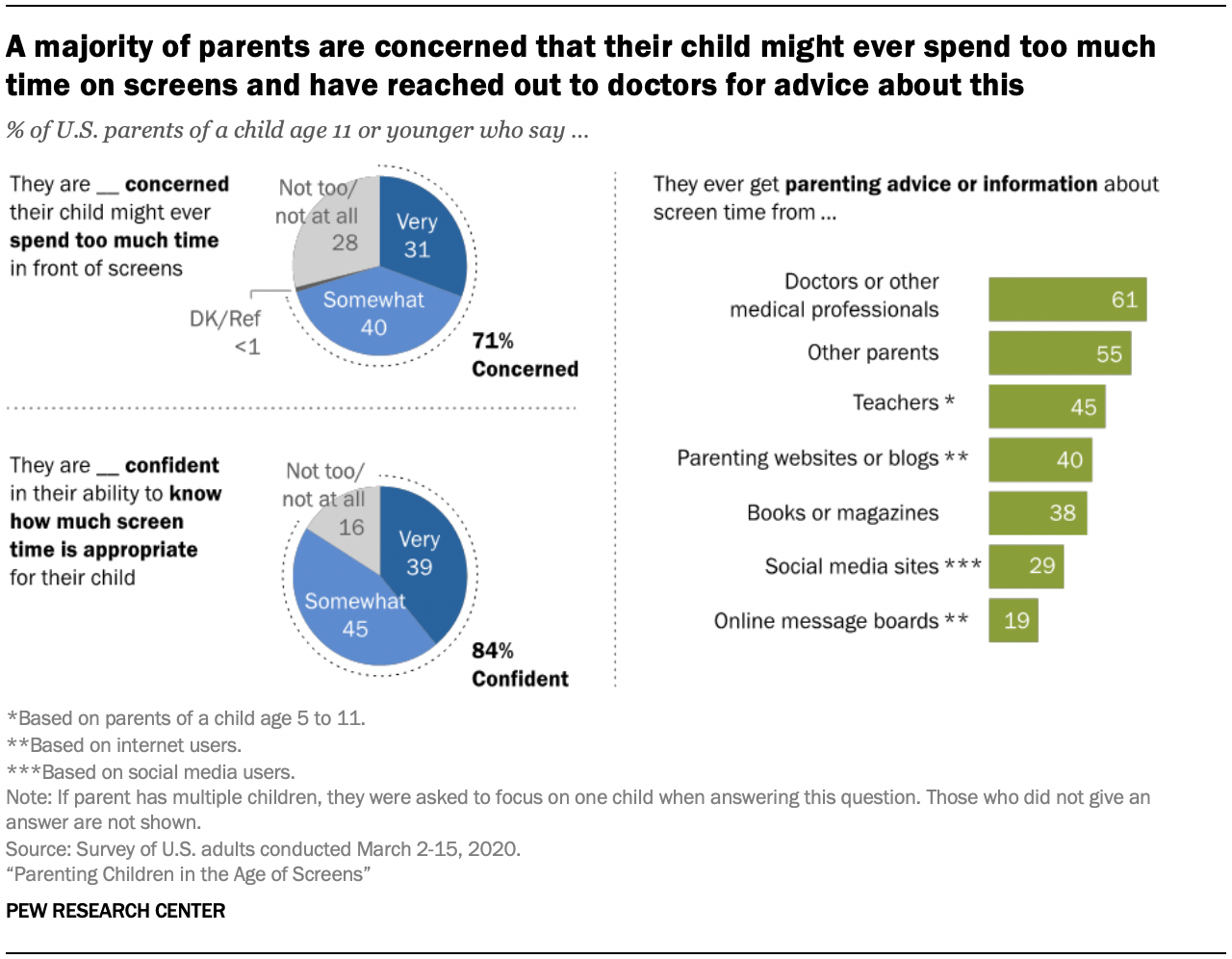



Parenting Kids In The Age Of Screens Social Media And Digital Devices Pew Research Center




Pdf Assessing The Quality Of The Parent Child Relationship Validity And Reliability Of The Child Parent Relationship Test Chip C
PurposeThe CWBS consist of 43 scales and 3 subscales (child neglect, parenting skills, and child functioning relative to school performance and juvenile delinquency) that are used in the identification of family problems The CWBS focuses on children, especially those children at risk or in placement situations It is also appropriate for programPsychometric properties of the ParentChild Relationship Inventory (PCRI) were examined using data collected from adolescents and their parents in the Fullerton Longitudinal Study Results revealed acceptable internal consistency for most scales and moderate to high 1year stability for all scales Both parents' PCRI scores correlated with their views of family climateTwo domains, Child and Parent, combine to form the Total Stress scale The Life Stress scale provides information about the amount of parent stress caused by factors outside the parentchild relationship




Pdf Attachment In Children With Autism Spectrum Disorder A Systematic Review Semantic Scholar
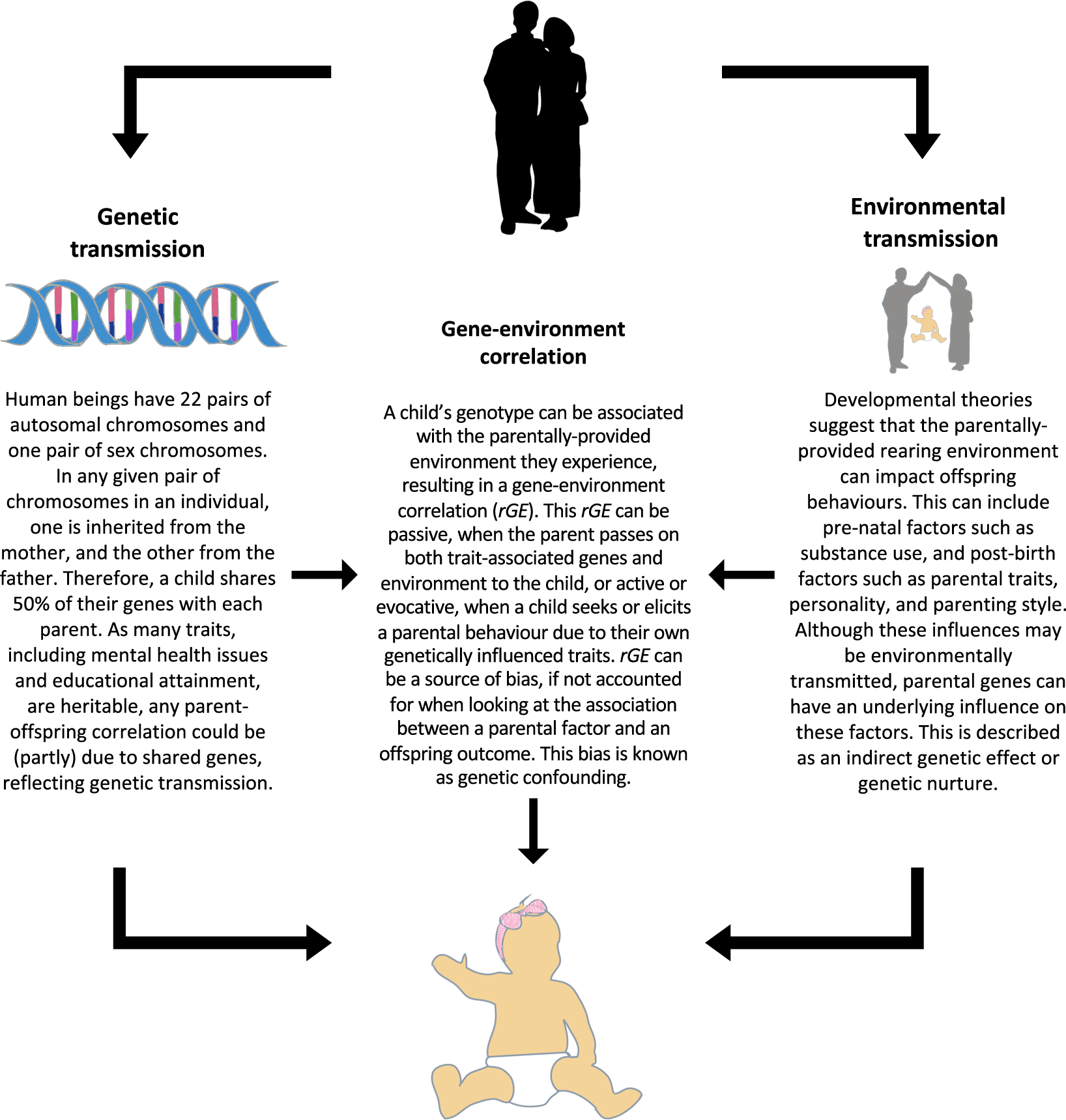



Parental Characteristics And Offspring Mental Health And Related Outcomes A Systematic Review Of Genetically Informative Literature Translational Psychiatry
For example, a study of stress in the lives of collegeeducated women used PSS 2 and PSS 3 to assess satisfaction with the parentchild relationship and parenting performance For the 630 women respondents, these PSS scales were strongly related to a broad array of other life measures, including total support from friends, relatives, and theParenting Stress Index– Short Form Guide (PSI/SF) Purpose The PSI is a selfreport screening tool that helps providers and families identify the sources and different types of stress that come with parenting Parents report their level of agreement with 36 items that fall into three subscalesChildren have the right to be heard both in public and within the family Save the Children promotes "positive parenting" With this Guide to Building Healthy ParentChild Relationships, Save the Children aims to make parents aware of the importance of positive approaches to interacting with their children that take into account childrens




Impact Of Parents Mobile Device Use On Parent Child Interaction A Literature Review Sciencedirect




Parent Coaching Increases Conversational Turns And Advances Infant Language Development Pnas
Measures of Parent/Child Ties Over time, assessments of parentadult child ties have varied in content and structure While many types of assessments may be useful, researchers who wish to measure multiple aspects of the parentadult child tie may seek a measure of relationship qualities specific to this tie Therefore, measures tapping solelyEach question has a score from 1 – 5 To establish the mean, divide the sum by the number of questions in that section Conflicts 2 seem to be struggling with each other 12 easily becomes angry with mePsychometric properties of the ParentChild Relationship Inventory (PCRI) were examined using data collected from adolescents and their parents in the Fullerton Longitudinal Study Results revealed acceptable internal consistency for most scales and moderate to



Family Interaction Relationship Types And Differences In Parent Child Interactions Document Gale Onefile Health And Medicine




Identification Of Child Maltreatment With The Parent Child Conflict Tactics Scales Development And Psychometric Data For A National Sample Of American Parents Sciencedirect
The ParentChild Relationship Inventory (PCRI) is an instrument for parents to assess their relationship with their children The instrument, which contains 78 items, has been standardized on over 1,100 parents in the United States The PCRI can be completed in 15 to minutesThe ParentChild Relationship Inventory (PCRI Gerard, 1994) was utilised to examine parental competence on a 4point Likert scale (1 = strongly agree and 4 = strongly disagree) An additionalThe parents' stress is assessed with the Child Domain and the Parent Domain subscales Miki scored high on all items The total score was 295, Child Domain was 135, and Parent Domain was 160, which indicated a need for professional care Scores for "few responses that please the parent," "the child's




Pdf Development Of The Parent Adult Relationship Questionnaire Parq Semantic Scholar




Pdf The Revised Inventory Of Parent Attachment Measuring Attachment In Families
ParentChild Rating Scale (PCRS), which was designed to measure children's socialemotional development A local urban sample of parents of 1,332 children (aged 3 to 6) and parents of 1,213 children from a national panel (aged 3 to 5) completed the PCRS Consistent psychometric properties of the PCRS were found from both samplesParentChild Relationship Inventory (PCRI) Manual Los Angeles, WPS Western Psychological Services 131 Wilshire Blvd Los Angeles, CA Phone Fax help@wpspublishcom wwwwpspublishcom $170 Yes The PCRI is a parent selfreport measure of parenting skill and attitudes toward parenting and towards theirChild's Name Eyberg Child Behavior Inventory TM Parent Rating Form by Sheila Eyberg, PhD Today's Date Child's Date of Birth Relationship to Child Child's Gender Directions Below are a series of phrases that describe children's behavior Please (1) circle the number describing how




Pdf The Parent Adolescent Relationship Scale




Training Blueprint Technology Professional And Student Professional Functioning Data Gathering And Storage Monitoring Student Performance And Progress Ppt Download
Parenting Stress Index American Psychological Association (17) Describes the Parenting Stress Index, a screening measure for evaluating parenting and identifying issues that may lead to problems in the child's or parent's behavior Parents' Assessment of Protective Factors User's Guide and Technical Report (PDF 2,600 KB) Kiplinger & BrowneSatisfaction of ParentChild Relationship Scale was carried out on 100 male and 100 female local university and college students aged 18 to 25 years old The findings show that father expressive and mentoring/advising involvement, and mother expressive involvement predict a better parentchild relationship Overall, this studyRelationship 1 spouse 2 child 3 parent 4 other How often do the two of you Never 1 Seldom 2 Sometimes 3 Fairly often 4 ____ Parents usually can be relied upon to keep their promises Inventory of Socially Supportive Behaviors 325
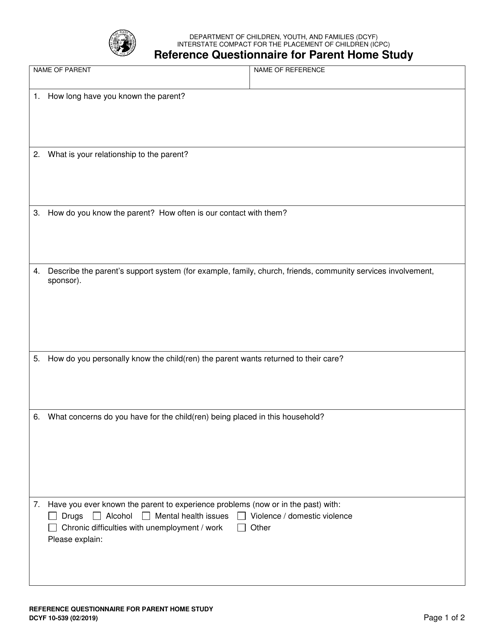



Dcyf Form 10 539 Download Fillable Pdf Or Fill Online Interstate Compact For The Placement Of Children Icpc Reference Questionnaire For Parent Home Study Washington Templateroller




Reference File 4 Custody Refs Pages 1 23 Flip Pdf Download Fliphtml5
ParentChild Relationship Inventory The PCRI is a parent selfreport measure of parenting skill and attitudes toward parenting and towards their children The measure yields scores on 7 content scales 1) Parental Support, 2) Satisfaction with Parenting, 3) Involvement, 4) Communication, 5) Limit Setting, 6) Autonomy, and 7) Role OrientationThis unique selfreport inventory tells you how parents view the task of parenting and how they feel about their children Designed for use with mothers or fathers of 3 to 15yearold children, the PCRI gives you a clear, quantified description of the parentchild relationship And it identifies specific areas in which problems may occurThe ParentChild Relationship Inventory (PCRI) is a 78item selfreport instrument designed to measure mothers' and fathers' perceptions of their relationship with an individual child and their attitudes about being parents




Pcri Manual Chapter 1 Pdf Pcri Manual Cover Layout 1 3 35 Pm Page 1 Parent Child Relat Ionship Inventory Pcri Manual Anthony B Gerard Ph D Course Hero




Basc 3 Parenting Relationship Questionnaire Basc 3 Prq Pearson Assessment
Unlike parentchild relationships and children's peer relationships, there is far less empirical research devoted to the study of sibling relationships, which is very surprising given that it is the longest lasting relationship of an individual's lifeFocusing on other factors of the parentchild relationship Moreover, interventions targeted toward the parentchild relationship may be more successful than attempting to target other risk factors (eg, poverty, parental abuse history, social support) because parentchild interactionAbstract Background Family functioning has been implicated in the onset of child and adult psychopathology Various measures exist for assessing constructs in the areas of parent–child relationships, parental practices and discipline, parental beliefs, marital quality, global family functioning and situationspecific measures
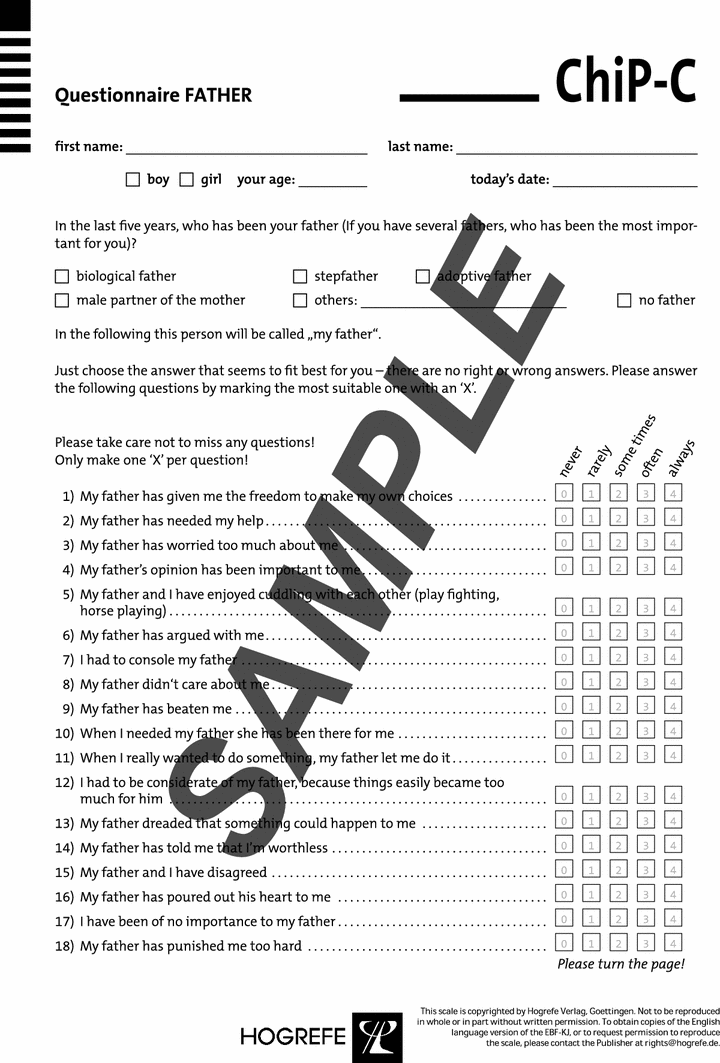



Assessing The Quality Of The Parent Child Relationship Validity And Reliability Of The Child Parent Relationship Test Chip C Springerlink




Parenting Relationship Questionnaire Prq Pearson Assessment
And/or school Aspects of the parentchild relationship are also examined Evaluation design The evaluation employs a quasiexperimental design, including a nonrandomized comparison group of parents who have not participated in the Back to Basics series This approach provides increased assurance that any changes in parenting or child behaviorParentChild Relationship Inventory ParentChild Relationship Inventory Share Resource Type Instruments Author(s) Gerard Anthony B Publisher(s) Western Psychological Services This project is supported by the Administration for Children and Families (ACF) of the United States Department of Health and Human Services (HHS) as part of a(MAT)17, 18 (parent report) X Dyadic Adjustment Scale (DAS)19 (parent report) X Marital Satisfaction InventoryRevised (MSIR) (parent report) X ParentChild Relationships (Parenting) Revised Child Report of Parental Behavior Inventory (CRPBI30)21 (self report by ages 8) X Inventory of Parent and Peer Attachment




Summary Of Subscale Results In The Parent Child Relationship Questionnaire Download Table




Parent Child Relationship Inventory Pcri
CHILDPARENT RELATIONSHIP SCALE Scoring Guide Sum the items as noted;Parent – Child Relationship Inventory (PCRI) This unique selfreport inventory tells you how parents view the task of parenting and how they feel about their children Designed for use with mothers or fathers of 3 to 15yearold children, the PCRI gives you a clear, quantified description of the parentchild relationshipThe ParentChild Relationship Inventory (PCRI) assesses parents' attitudes toward parenting and toward their children The PCRI yields a quantified description of the parentchild relationship that complements other assessment procedures used in clinical evaluations of children and families Rather than replacing qualitative evaluation of parentchild interactions,




Pdf The Parent Adolescent Relationship Scale Sarah Garrett Academia Edu




Questionnaire Measures Of The Parent Child Relationship Download Table
This inventory consist 150 items Provides acceptance, avoidance and concentration scores of adolescents towards their parents For Intermediate students 1349TR(1 set includes 100 consumable booklets and manual) Parent Child Relationship Scale by P Nalini Rao (Hindi/English)




Association Of Parental Supply Of Alcohol With Adolescent Drinking Alcohol Related Harms And Alcohol Use Disorder Symptoms A Prospective Cohort Study The Lancet Public Health




Scielo Brasil Questionario De Percepcao Dos Pais Evidencias De Uma Medida De Estilos Parentais Questionario De Percepcao Dos Pais Evidencias De Uma Medida De Estilos Parentais




Pdf The Parent Adult Child Relationship Questionnaire Pacq The Assessment Of The Relationship Of Adult Children To Their Parents



Core Ac Uk



Parenting Worksheets Assessment Tool Free Social Work Tools And Resources Socialworkerstoolbox Com




Pdf Quick Simple Measures Of Family Relationships For Use In Clinical Practice And Research A Systematic Review Semantic Scholar



1




Parent Child Relationship Inventory Pcri X4e6o2p7jgn3




Parent Problem Checklist Ppc Research On Parents And Children




Questionnaire Measures Of The Parent Child Relationship Download Table



Core Ac Uk




Pdf Reliability And Validity Of The Short Form Of The Child Health Questionnaire For Parents Chq Pf28 In Large Random School Based And General Population Samples




Factor Structure Of The Chinese Version Of The Parent Adult Child Relationship Questionnaire Semantic Scholar




Pdf The Parent Adult Child Relationship Questionnaire Pacq The Assessment Of The Relationship Of Adult Children To Their Parents
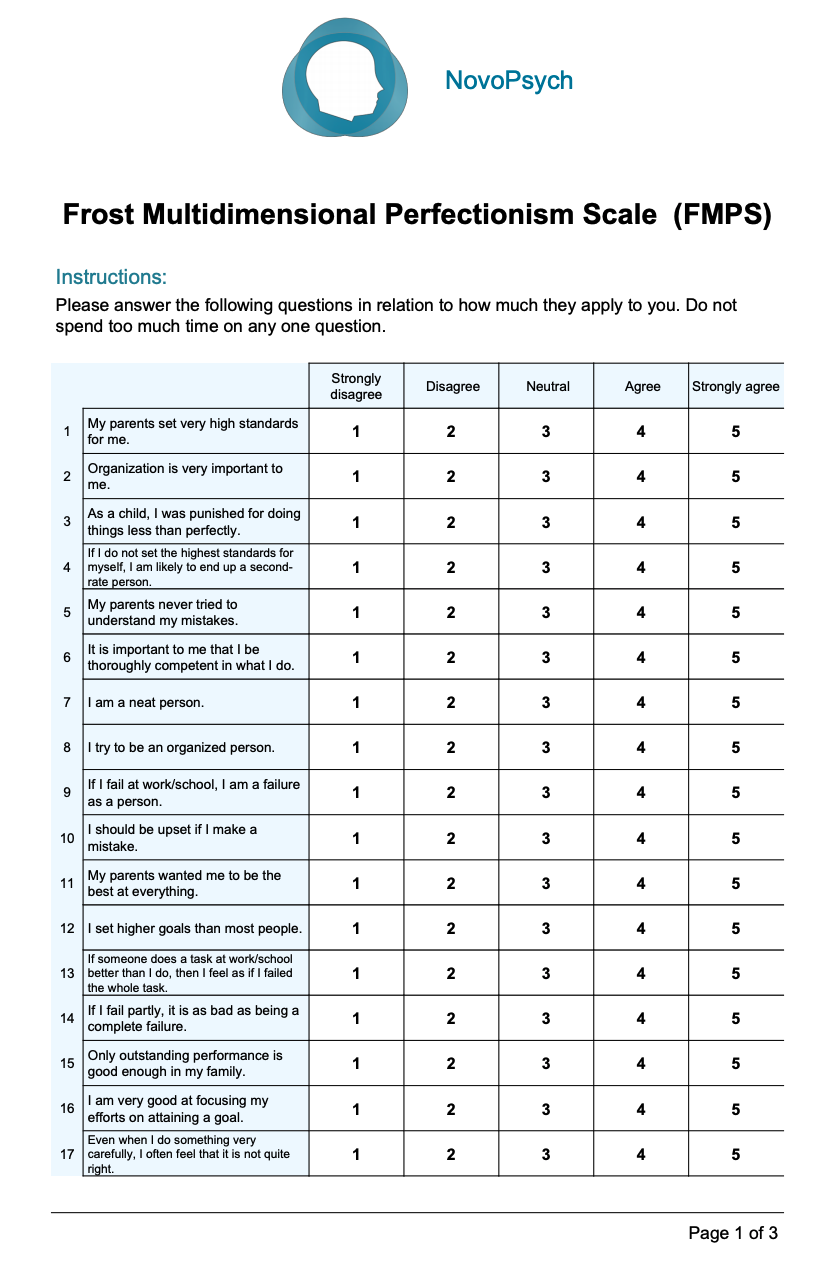



Frost Multidimensional Perfectionism Scale Fmps Novopsych



Apa Org




The Parent Adult Child Relationship Questionnaire Docsbay
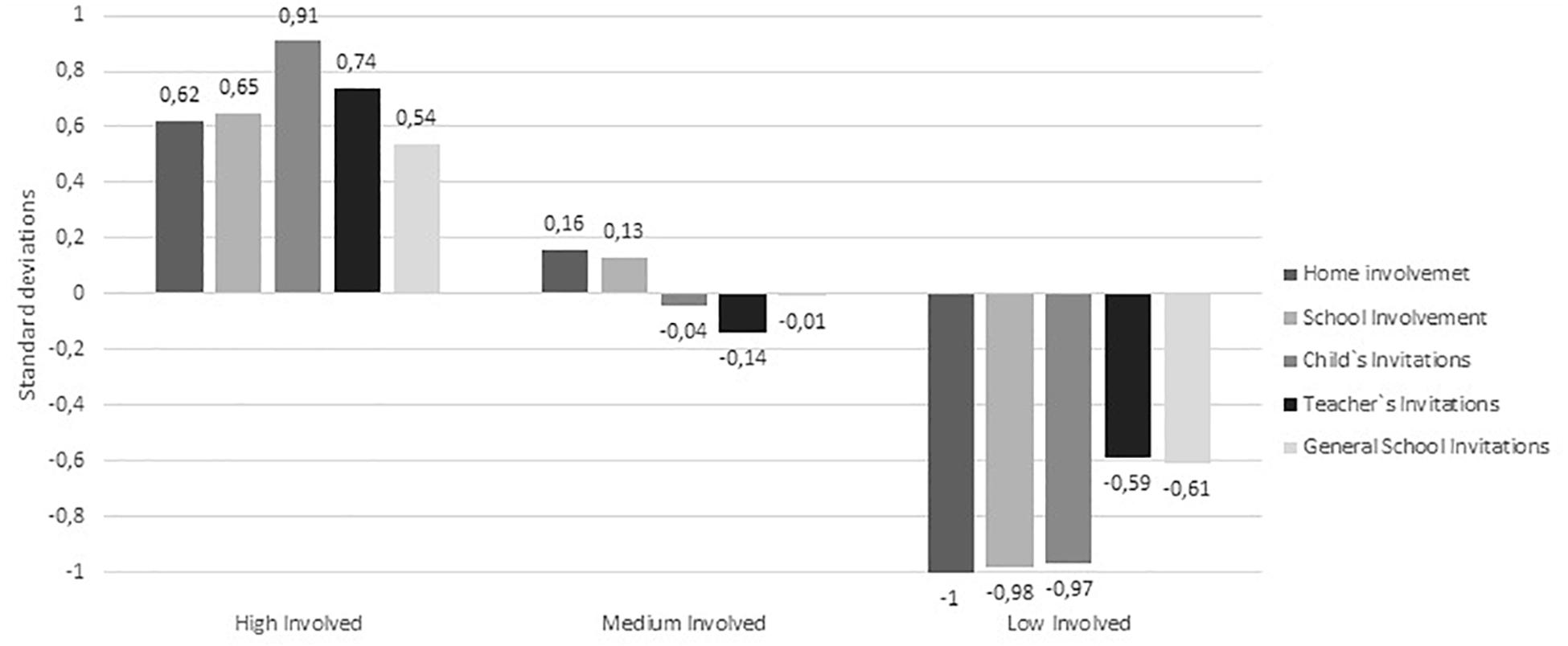



Frontiers Effect Of Parental Involvement On Children S Academic Achievement In Chile Psychology
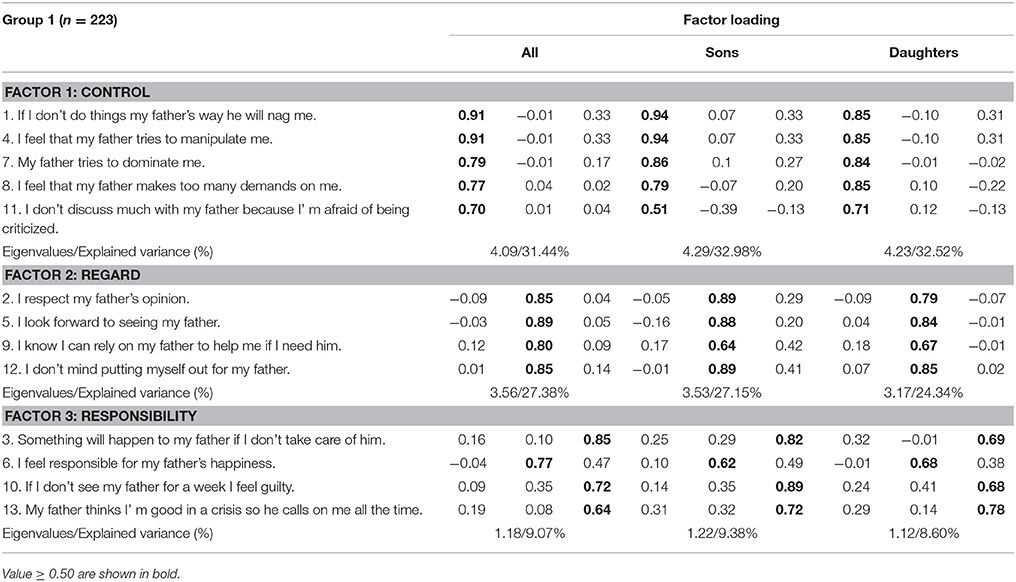



Frontiers Factor Structure Of The Chinese Version Of The Parent Adult Child Relationship Questionnaire Psychology



Ojp Gov



Full Article Parent Child Relationships And Offspring S Positive Mental Wellbeing From Adolescence To Early Older Age
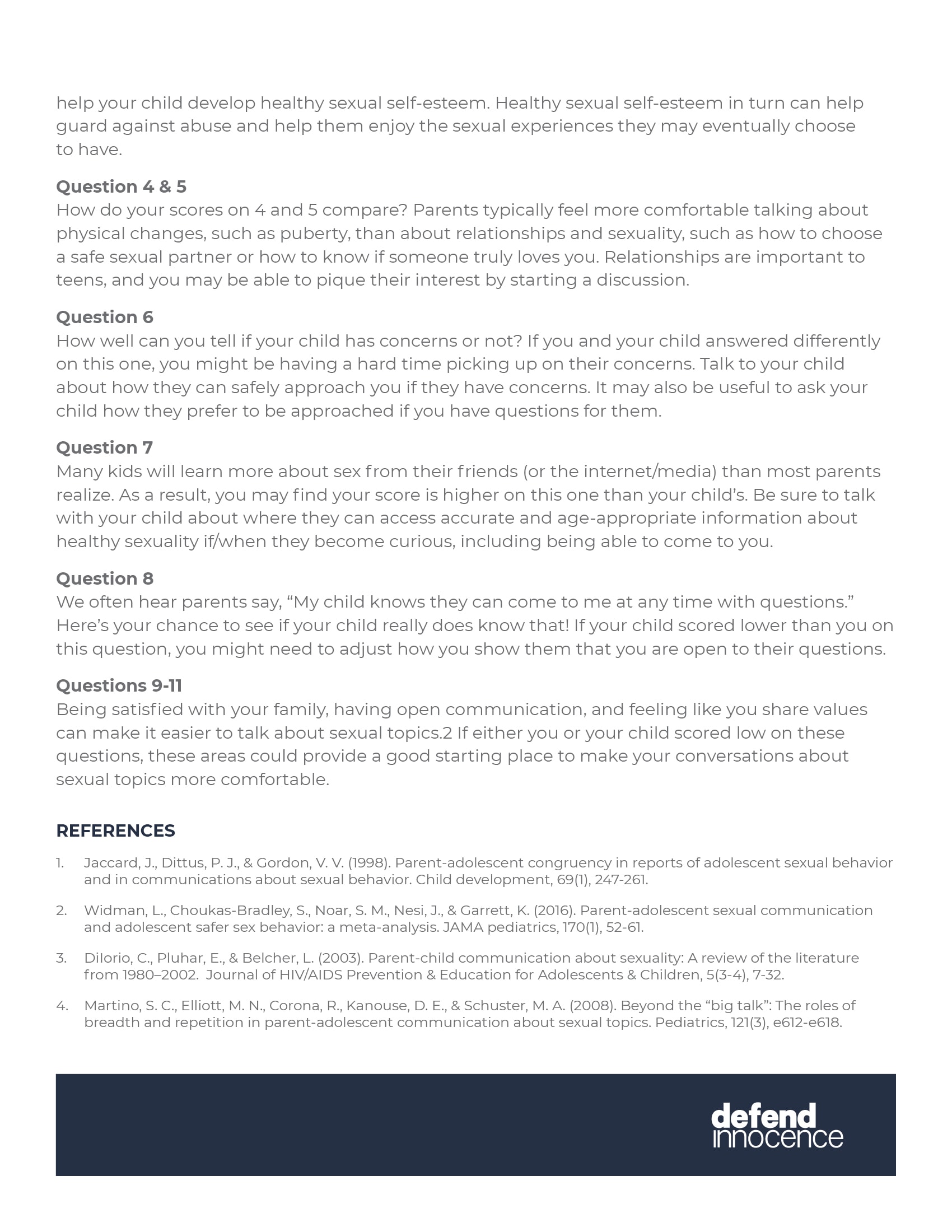



Child Abuse Prevention Worksheets For Ages 12 Defend Innocence



1
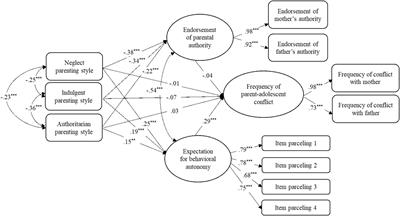



Frontiers Parenting Styles And Parent Adolescent Relationships The Mediating Roles Of Behavioral Autonomy And Parental Authority Psychology
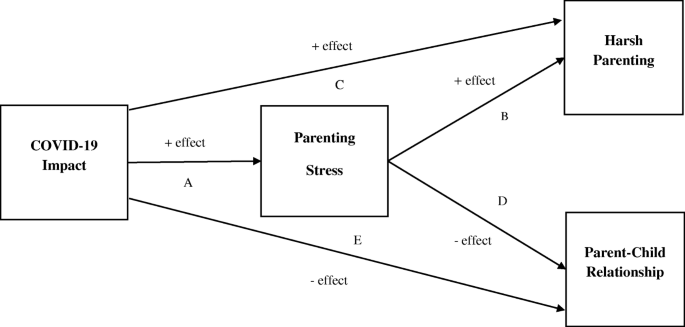



Mediating Effects Of Parental Stress On Harsh Parenting And Parent Child Relationship During Coronavirus Covid 19 Pandemic In Singapore Springerlink




Pdf The Youth Report Version Of The Child And Adolescent Scale Of Participation Casp Assessment Of Psychometric Properties And Comparison With Parent Report Semantic Scholar



Children With Autism In Taiwan And The United States Parental Stress Parent Child Relationships And The Reliability Of A Child Development Inventory Page 87 Unt Digital Library




Pdf Development Of The Parent Adult Relationship Questionnaire Parq Semantic Scholar




Summary Of Subscale Results In The Parent Child Relationship Download Table




Pdf The Parent Caregiver Relationship Scale Rounding Out The Relationship System In Infant Child Care



Questionnaire For Parent Child Relationships In Our Home



Files Eric Ed Gov




Impact Of Parenting Practices On Parent Child Relationships In Children With Specific Learning Disability Karande S Kuril S J Postgrad Med




Pcri Parent Child Relationship Inventory



Children With Autism In Taiwan And The United States Parental Stress Parent Child Relationships And The Reliability Of A Child Development Inventory Page 85 Unt Digital Library
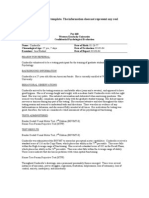



Parent Child Relationship Inventory Pcri Gerard Pdf




Impact Of Parenting Practices On Parent Child Relationships In Children With Specific Learning Disability Karande S Kuril S J Postgrad Med




Health Impacts Of Parental Migration On Left Behind Children And Adolescents A Systematic Review And Meta Analysis The Lancet




Covid 19 And Parent Child Psychological Well Being American Academy Of Pediatrics




Factor Structure Of The Chinese Version Of The Parent Adult Child Relationship Questionnaire Semantic Scholar




Pcri Manual Chapter 1 Pdf Pcri Manual Cover Layout 1 3 35 Pm Page 1 Parent Child Relat Ionship Inventory Pcri Manual Anthony B Gerard Ph D Course Hero




Parent Adolescent Relationships And Their Associations With Adolescent Suicidal Behaviours Secondary Analysis Of Data From 52 Countries Using The Global School Based Health Survey Eclinicalmedicine
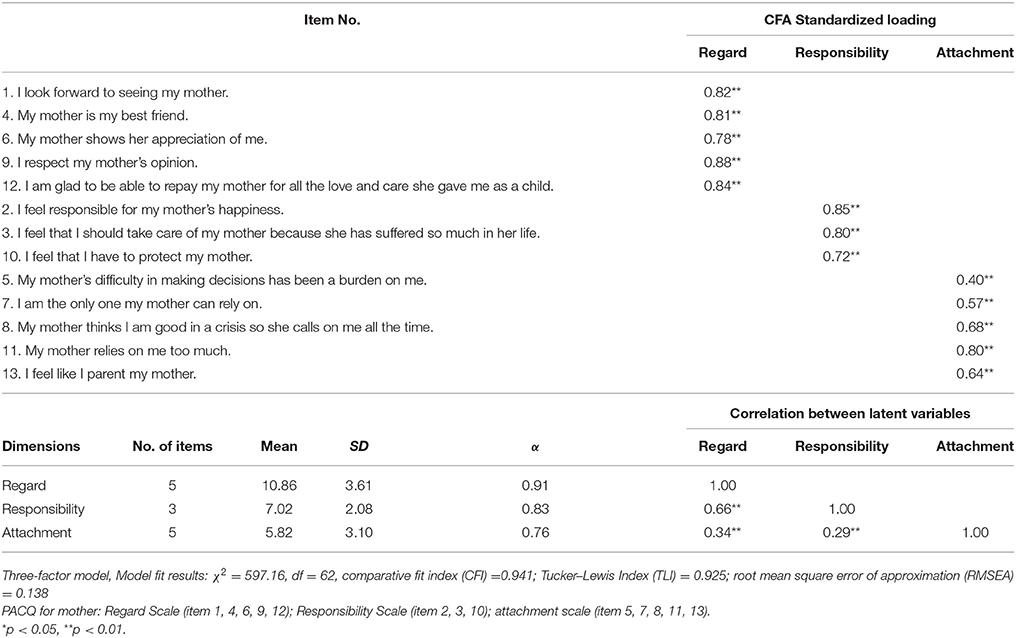



Frontiers Factor Structure Of The Chinese Version Of The Parent Adult Child Relationship Questionnaire Psychology
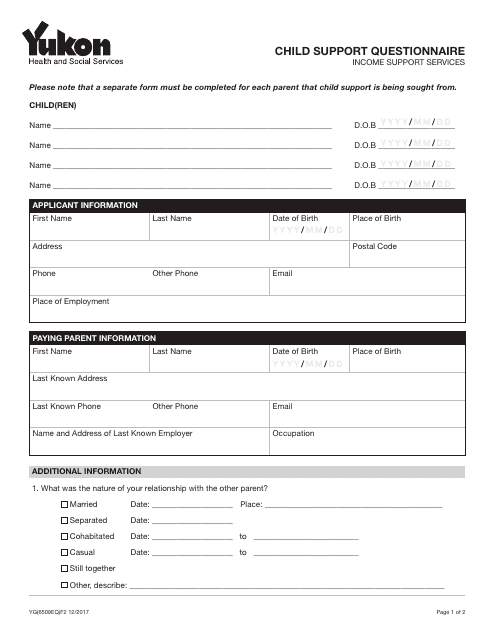



Form Yg6509 Download Fillable Pdf Or Fill Online Child Support Questionnaire Yukon Canada Templateroller
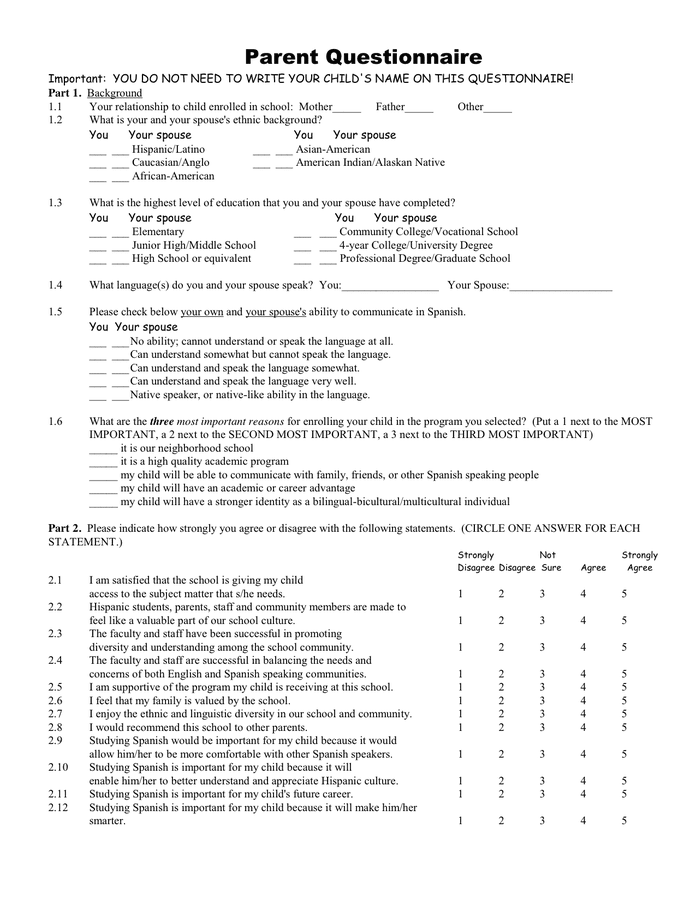



Parent Questionnaire In Word And Pdf Formats




Cancer Related Effects On Relationships Long Term Psychological Status And Relationship Satisfaction In Couples Whose Child Was Treated For Leukemia A Petale Study




Pdf Parent Child Relationship Of Teenagers Ijip Journal Academia Edu



1




Parent Child Relationship Inventory Pcri Pdf




Impact Of Parenting Practices On Parent Child Relationships In Children With Specific Learning Disability Karande S Kuril S J Postgrad Med




Parent Child Relationship Inventory Pcri Gerard Pdf
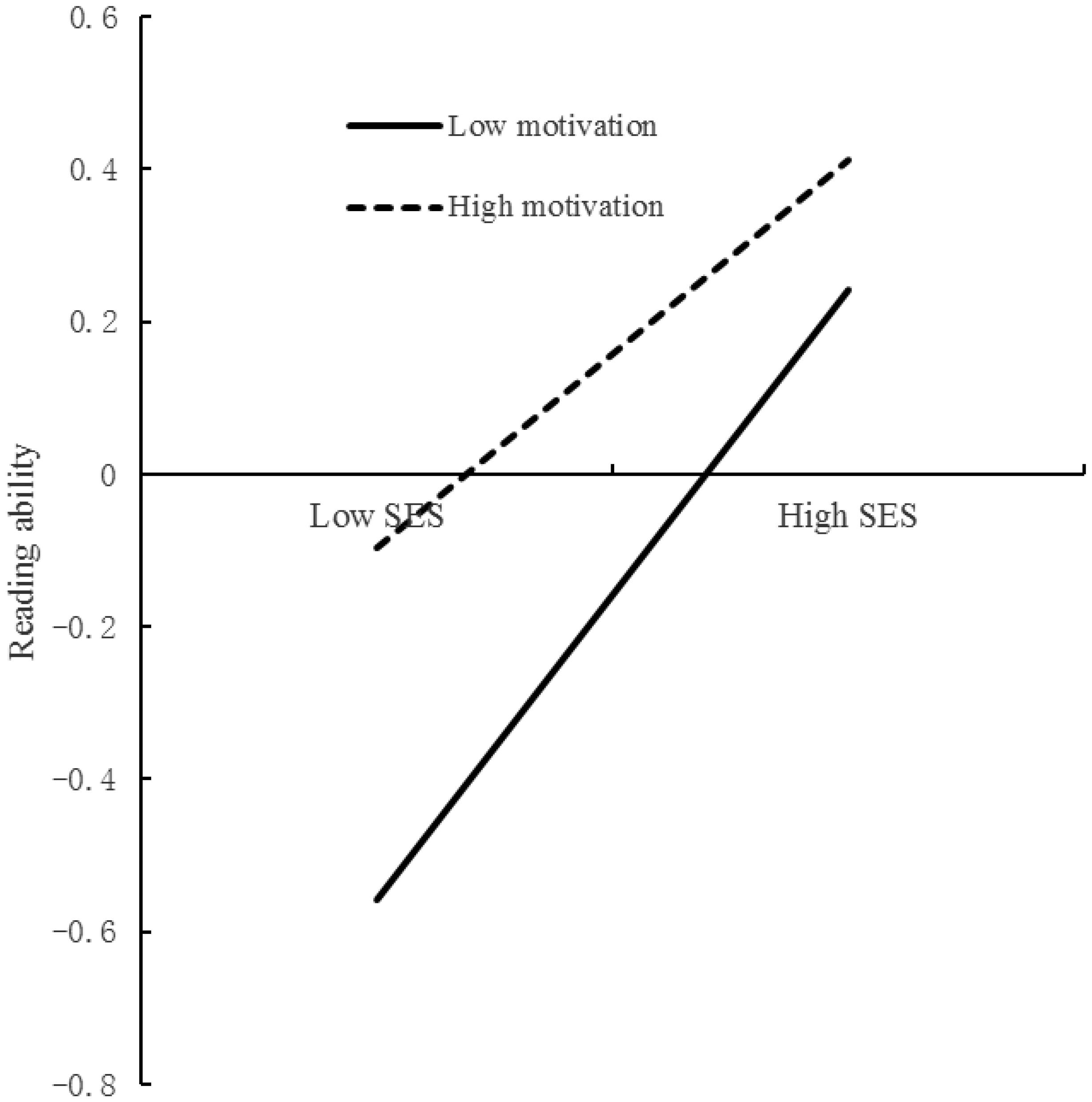



Frontiers Effects Of Socioeconomic Status Parent Child Relationship And Learning Motivation On Reading Ability Psychology
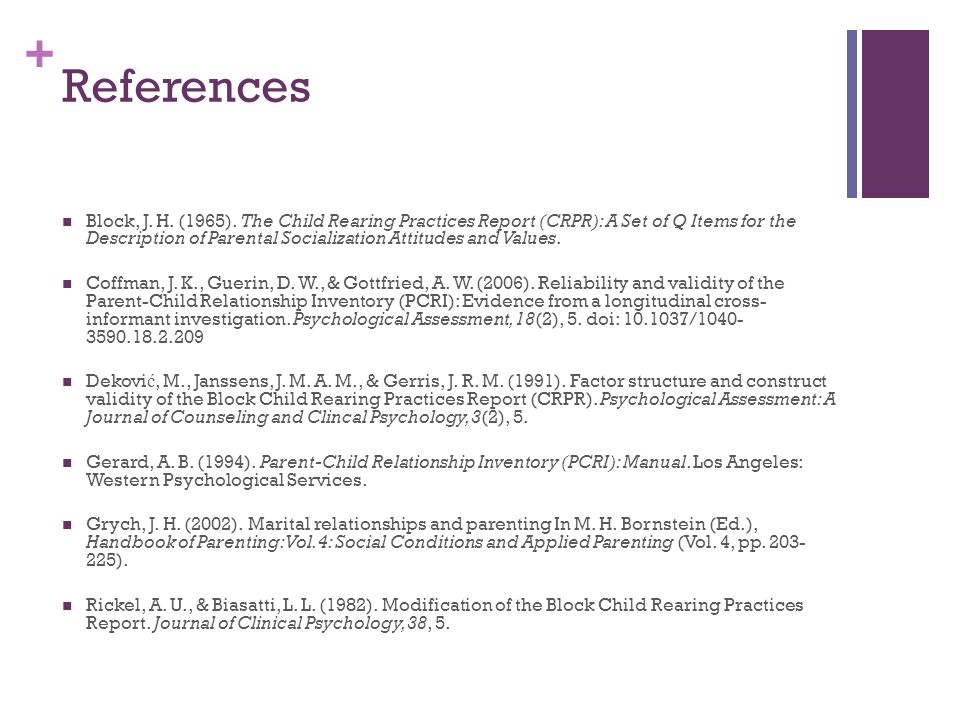



Measuring The Parent Child Relationship Ppt Video Online Download




Parent Child Relationship Inventory Pcri Gerard Pdf




Les Degres De Parente
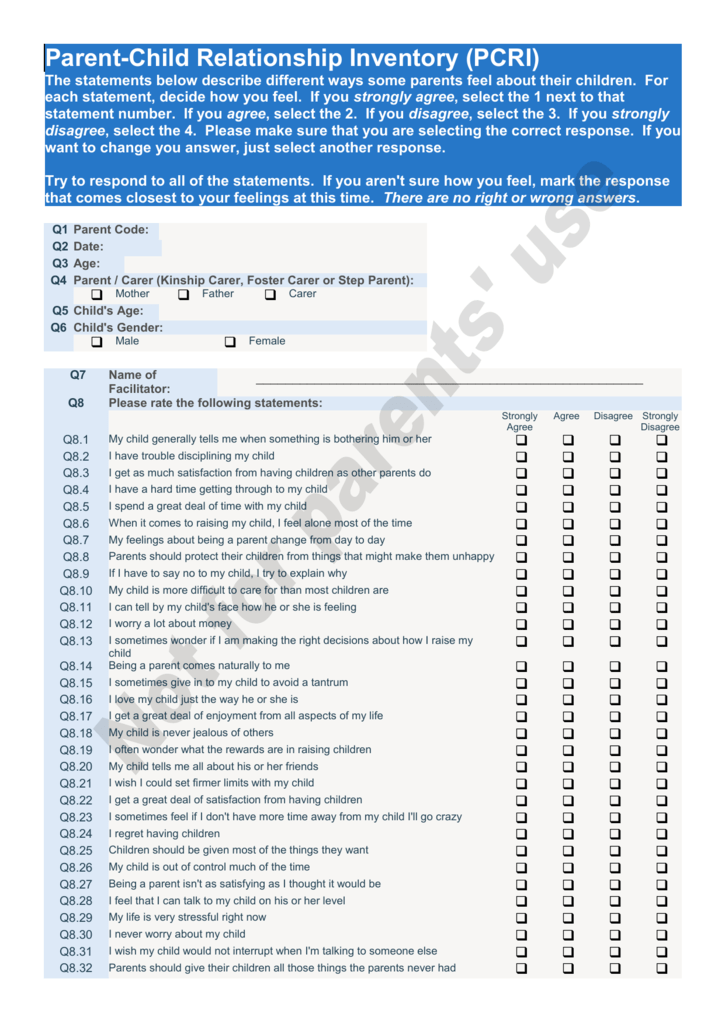



Parent Child Relationship Inventory Questionnaire



Retrospective Perception Of Parent Child Relationships As A Function Of Achievement Level Page 30 Unt Digital Library




Publications Burn Out Parental



Mrc Soton Ac Uk




Pdf Adolescents And Their Parents A Critical Review Of Measures To Assess Their Satisfaction With One Another




Pcri Parent Child Relationship Inventory




Parent Child Relationship Inventory Pcri Gerard Pdf




Pdf Parental Authority Vashnarekha Kumarasuriar Academia Edu




Factor Structure Of The Chinese Version Of The Parent Adult Child Relationship Questionnaire Semantic Scholar



Graduate Thesis Or Dissertation Relationship Between The Similarity Of Food Preferences Among Parents And Children And Parental Attitudes Id Wh246w267 Scholarsarchive Osu



Files Eric Ed Gov




Pdf The Parent Caregiver Relationship Scale A Measure Of The Adult Relationship In Infant Child Care
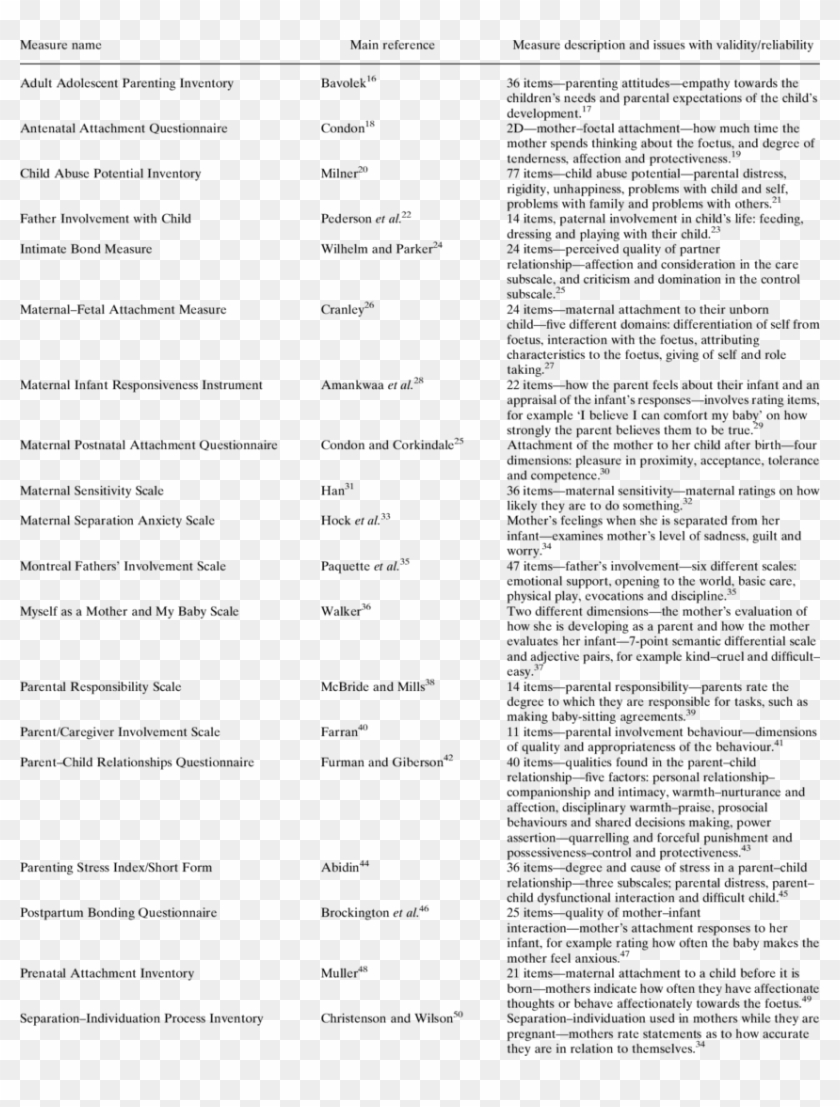



Questionnaire Measures Of The Parent Child Relationship Parent Child Relationship Questionnaire Clipart Pikpng



3
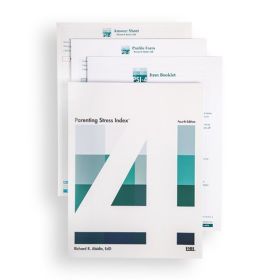



Pcri Parent Child Relationship Inventory




Pdf Translation And Validation Of The Chinese Version Of Parent Child Relationship Inventory Pcri C In Hong Kong




Pdf Factor Structure Of The Chinese Version Of The Parent Adult Child Relationship Questionnaire
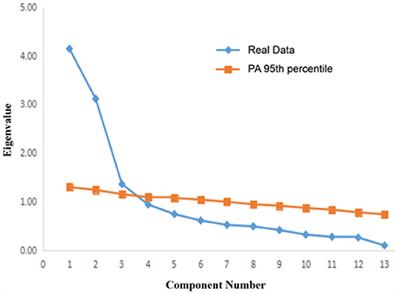



Frontiers Factor Structure Of The Chinese Version Of The Parent Adult Child Relationship Questionnaire Psychology



Children With Autism In Taiwan And The United States Parental Stress Parent Child Relationships And The Reliability Of A Child Development Inventory Page Unt Digital Library



Children With Autism In Taiwan And The United States Parental Stress Parent Child Relationships And The Reliability Of A Child Development Inventory Page Unt Digital Library




The Effect Of Family Centered Nature Therapy On Interactions Between Parent And Child With Autism Spectrum Disorder Iranian Rehabilitation Journal




Child Parent Relationship Scale Pdf
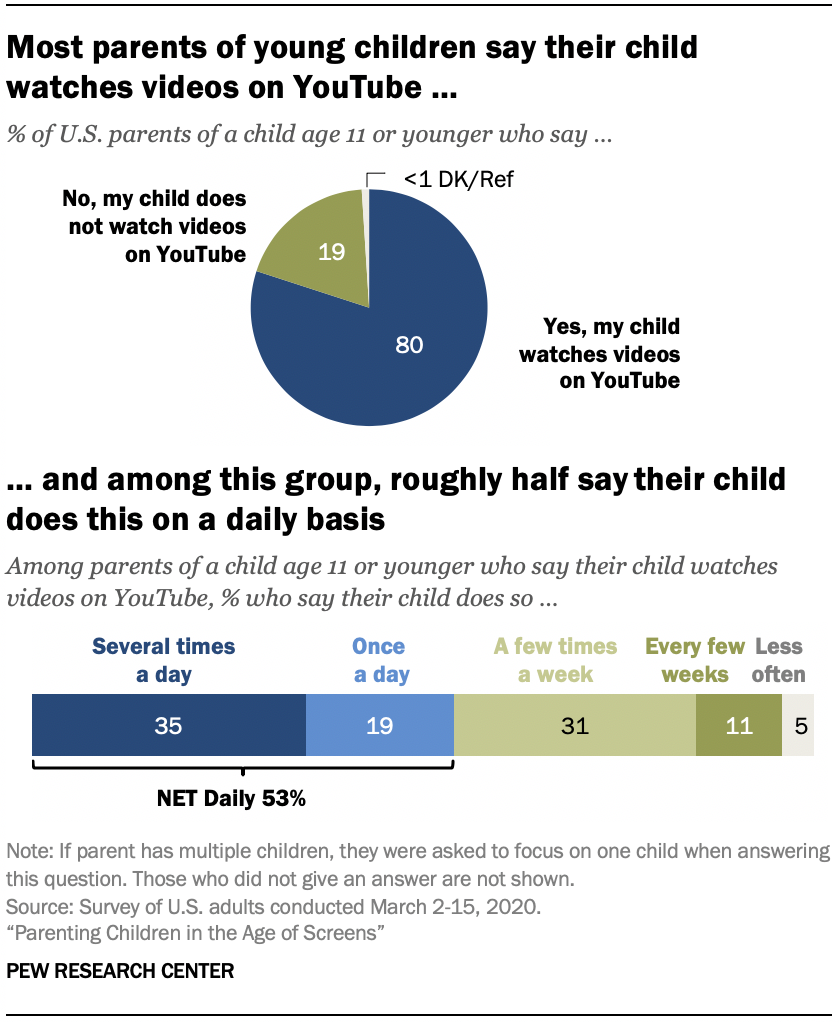



Parental Views About Youtube Pew Research Center



Children With Autism In Taiwan And The United States Parental Stress Parent Child Relationships And The Reliability Of A Child Development Inventory Page Unt Digital Library
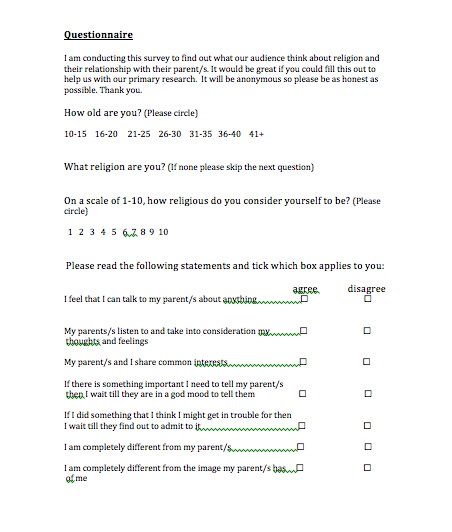



Vivienne S Individual Blog Religion And Parent Child Relationship Questionnaire
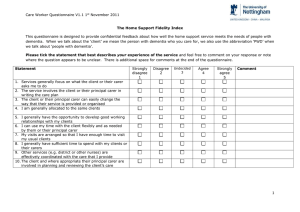



Parent Child Relationship Inventory Questionnaire



Core Ac Uk



0 件のコメント:
コメントを投稿